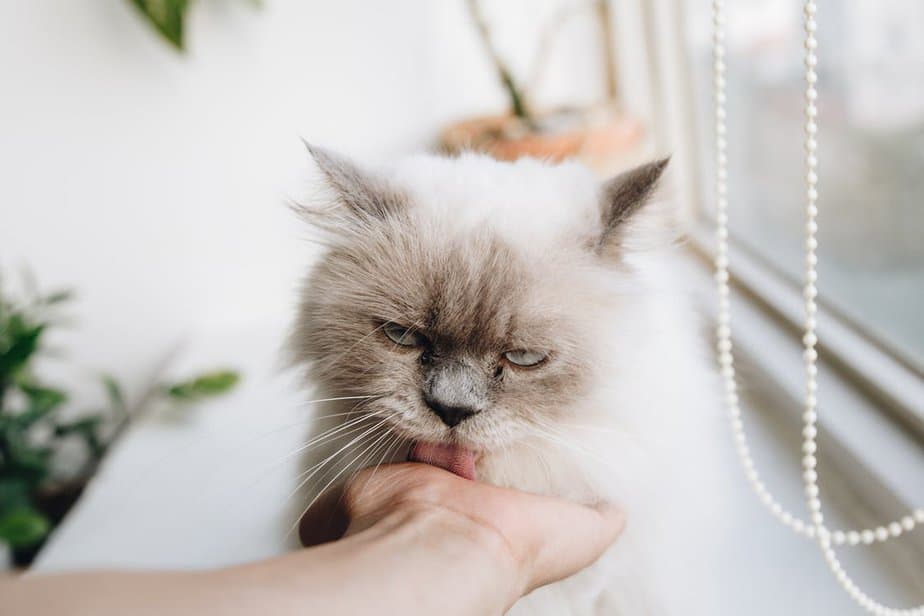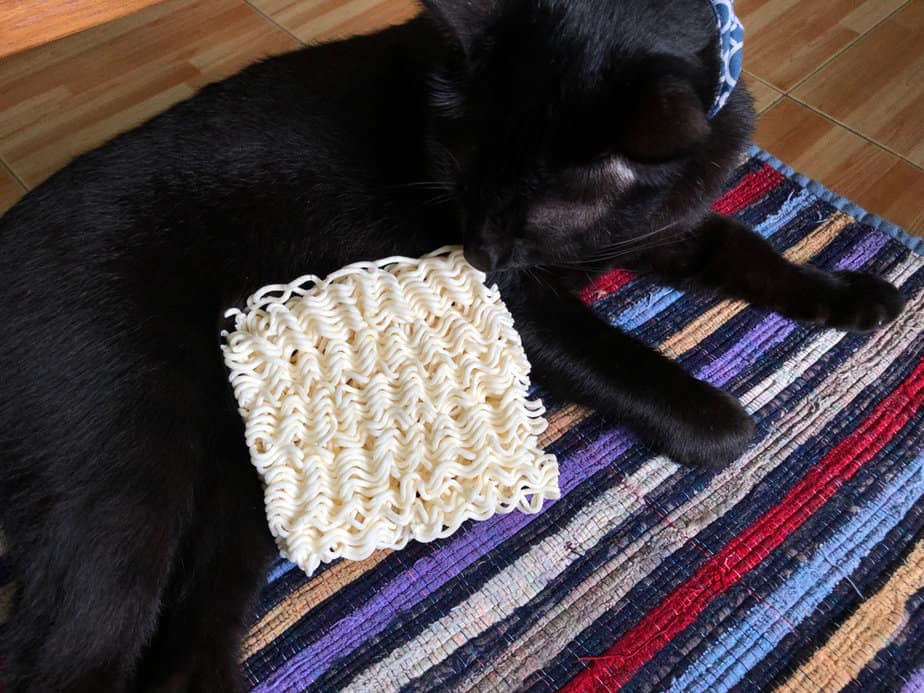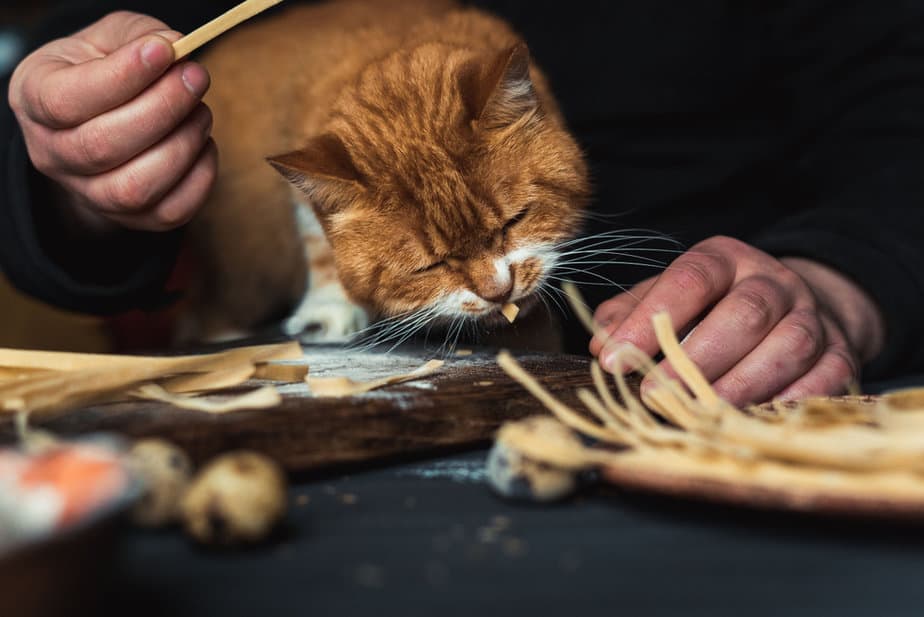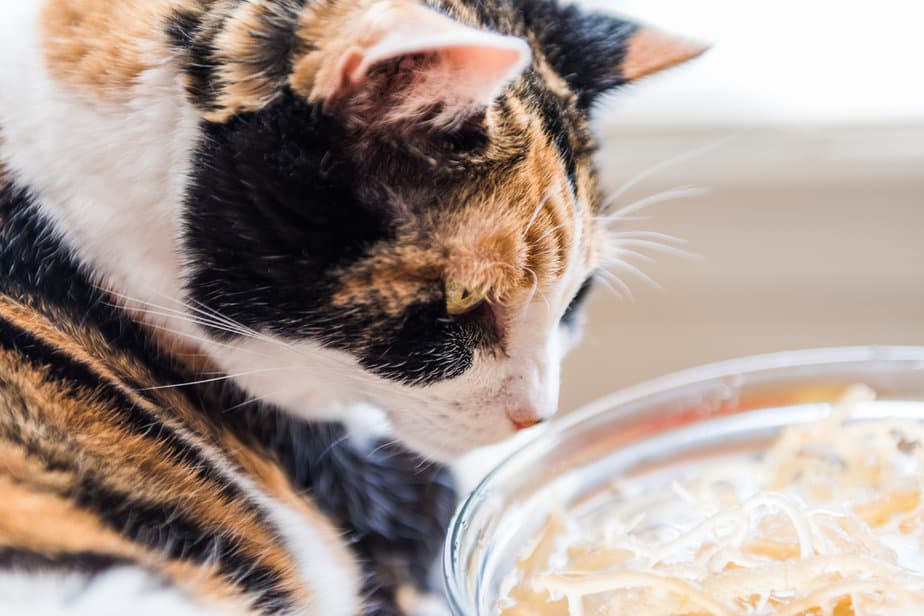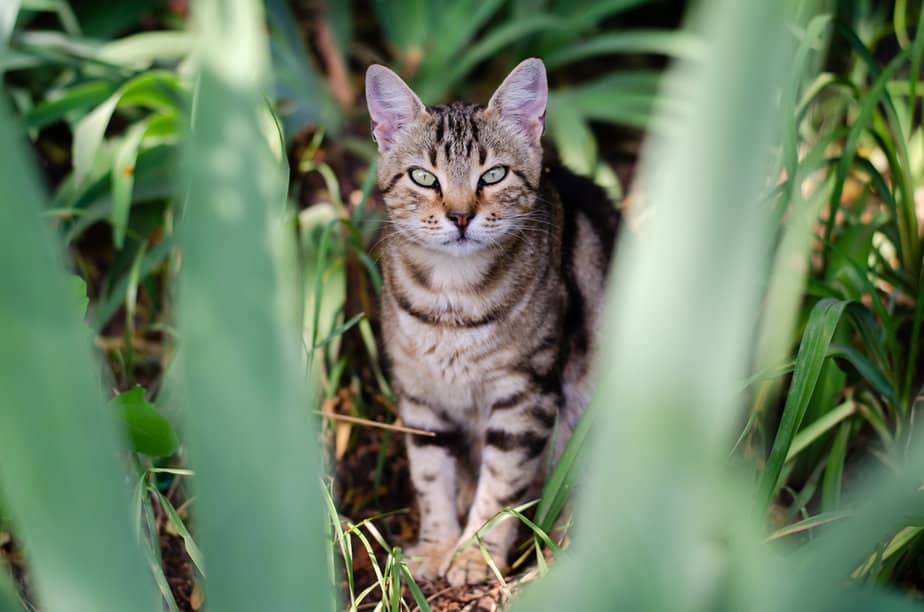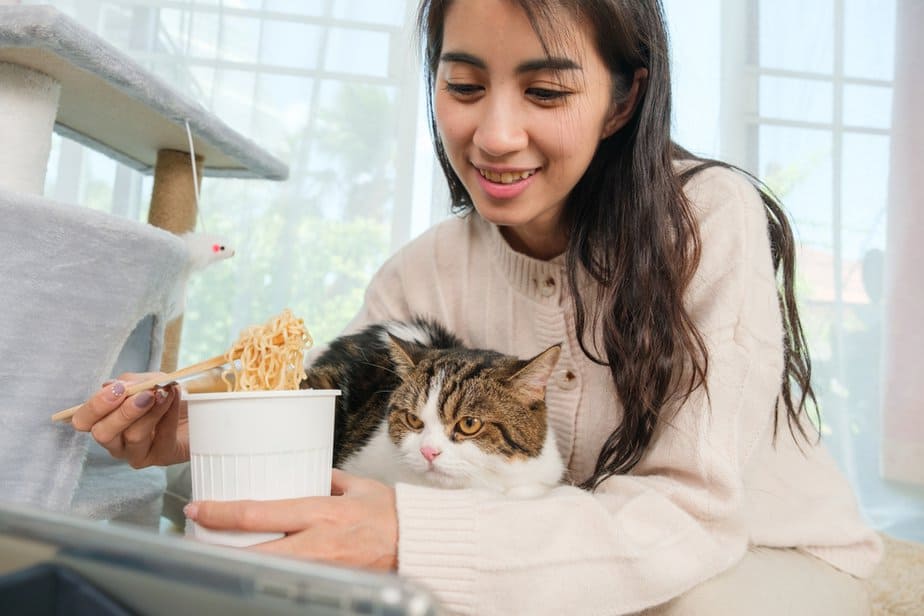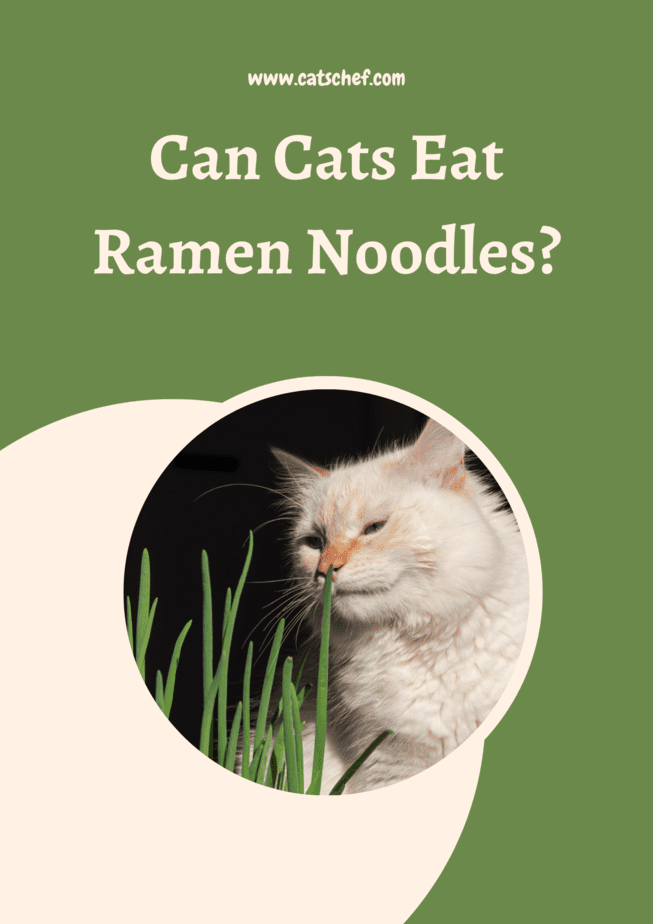📖 Table of Content:
I know for a fact that Ramen noodles are one of the most popular dishes out there. The thing we as cat parents must ask ourselves is can cats eat Ramen noodles?
People are really sensitive when it comes to their pets. I’ll start with myself because I’m the first one that’ll be sad if my cat looks at me with her big doe eyes while I’m eating something.
It’s just heartbreaking when you know human food isn’t good for them. But there’s always that little ray of hope lurking in the back of your mind. If my pet showed interest in this food, I’d also most definitely think about whether cats can eat Ramen noodles safely.
It’s not easy having that constant urge to keep them satisfied and offer them the best life possible. Someone who’s never had a pet before won’t know what I’m talking about. But you do, and that’s why you’re here.
Can cats eat Ramen noodles safely?
The thing about human foods is that majority of it isn’t really healthy, even for us. We tend to deceive ourselves quite often because it’s cheap, tasty, and quick.
Now, cat parents only want what’s best for their furkids. They can’t really fend for themselves, so it’s our job to provide them with the best care possible. However, I’m not really sure that Ramen noodles are going to be just that. Although your furball may find them delicious, this treat isn’t made for a carnivore like yours.
If you’re wondering can cats eat Ramen noodles, I’m more than happy to provide you with an answer. The short one would be no, but there’s really more to it.
If you wish well for your furbaby, I suggest doing further research and reading the full article. Today, we’ll reveal the dangers of this popular dish and explanation of the dilemma: “Can cats eat Ramen noodles?”
What’s to be found?
You’d think that Ramen noodles are a harmless snack that everyone has the right to enjoy. Well, in most cases it should be true. But how are cats supposed to fit into that human kitchen?
We’ve seen a billion times that it’s no problem for our little thieves to get their paws dirty and go on a tasting spree with our food. All of these stealing attempts were successful and ended with a full belly. So why wouldn’t you think that cats can eat Ramen noodles?
I see where you’re going. But what you have to be aware of is that your feline is actually a carnivore. What I mean to say is that she isn’t supposed to survive on a diet based on wheat flour.
She needs a daily intake of meat that contains protein to keep her health in check. If you don’t want your cat to keep fit, Ramen noodles are a way to go.
I know you won’t want that for your furkid, so it’s best if she avoids this tasty treat. There are a couple of ingredients used in making Ramen noodles that your cat should avoid.
None of them are poisonous, but it doesn’t give you the green light to stop worrying.
1. Noodles
Just like pasta, noodles are made out of wheat flour that isn’t toxic to felines. However, it doesn’t have many health advantages because it’s devoid of protein.
Protein is an essential nutrient that cats can’t live without. She may have a bite or two of this delicious ingredient, but that’s about it. While cats can eat Ramen noodles, it doesn’t mean it’s recommendable. You shouldn’t let this become a habit of hers because noodles are packed with carbohydrates.
These can cause several health problems for your feline. First and foremost, the nutritional value of this food is very scarce.
Second of all, the carbs could make your pet put on extra pounds. While this may look cute to you, imagine how it would make her feel?
The additional weight could cause major respiratory problems, cardiovascular issues, as well as joint inflammation. You don’t want this happening to your pet, so make sure she cuts down on the carbs.
2. Can cats eat Ramen noodles because of salt?
This is an ingredient that plays no games. When it comes to the combination of cats and sodium, in some cases, it could be lethal.
If you have ever wondered can cats eat Ramen noodles because of their salt content, the answer is rather simple. As Simon Cowell would say, it’s a no.
Unfortunately for your pet, sodium is one of the few minerals that could do more harm than good to her. Although it has its benefits and purpose in organisms, it can be quite detrimental to her health.
If she manages to swallow large quantities of this table condiment, your feline could end up with a condition known as salt poisoning. This occurs when the sodium piles up in her body, and she’s unable to digest it.
Not to frighten you, but this is actually a reason for alarm. It’s unlikely your cat will get salt poisoning by eating a bowl of Ramen noodles, but it doesn’t mean she’s out of the woods.
If she feasts on foods that are high in salt regularly, sodium might still accumulate in her body. Therefore, if your feline starts showing any signs of sodium toxicity, call your vet immediately.
Some of the clinical signs include vomiting, nausea, diarrhea, as well as seizures, and tremors. In severe cases, felines can fall into a coma or even die from salt poisoning.
Therefore, next time you ask yourself “Can cats eat ramen noodles?”, make sure to remember these.
3. What about kansui?
Kansui is an ingredient that’s found in Ramen noodles. You may have never heard of it before as it’s rather unusual. It’s used to provide food with alkalinity and is made of potassium carbonate and sodium bicarbonate.
A substitution for kansui is baking soda if you ever decide to make Ramen noodles on your own. Although a cat would never probably be interested in tasting these, you should still be cautious.
We know just how curious these fluffy creatures can get, so it’s never easy to stay on guard around them. Felines will get into trouble in the blink of an eye.
All of the fat isn’t good for your cat!
This slogan should be on billboards at this point. When it comes to your furry monster, you should really be on the lookout for fats.
Your pet’s diet can sometimes be hard to monitor, but it’s absolutely necessary. Her health depends on it!
Low-quality foods can be the main culprit of your feline’s illnesses. You know that half the health comes through your mouth, right?
Therefore, a bowl of Ramen noodles won’t do her any good in terms of nutritional value. The lack of nutritional benefits of Ramen noodles is reason enough to not feed them to your cat.
However, there are also a couple more deal-breakers. Next to carbs, fat and calories are the main crime suspects for deteriorating her health.
Fat is an essential nutrient for felines, but not the kind that’s found in Ramen noodles. It’s highly saturated which raises the cholesterol in the blood.
Also, it can cause significant health issues, along with those extra calories. Cardiovascular diseases and strokes are possible case scenarios with raised blood cholesterol.
Can cats eat Ramen noodles without seasoning?
Ramen noodles don’t hold any significant nutritional value to felines and are, therefore, an unnecessary part of her diet. Alongside the calories, fat and carbs are major health risks for your pet. Excessive amounts of these can greatly ruin your feline’s health. That’s why you shouldn’t let your cat eat Ramen noodles, even if they don’t contain any seasoning.
Keep in mind that your pet is a carnivore who requires a special diet to keep fit and healthy. You’re her main care provider, so make sure you do it right.
Besides, it’s completely unnatural for a meat-eater to snack on some wheat products after all. If your pet shows interest in this food, make sure you intervene.
Highly saturated fats can cause blood clotting and various heart diseases whereas excessive amounts of carbs and calories can cause other problems.
Obesity can frequently set the foundations for additional illnesses. These include diabetes which can lead to dental problems, such as tooth decay. Keep the junk food out of your cat’s way and all should be well.
